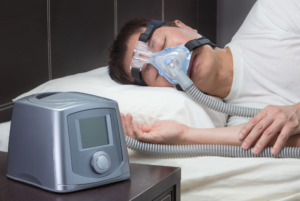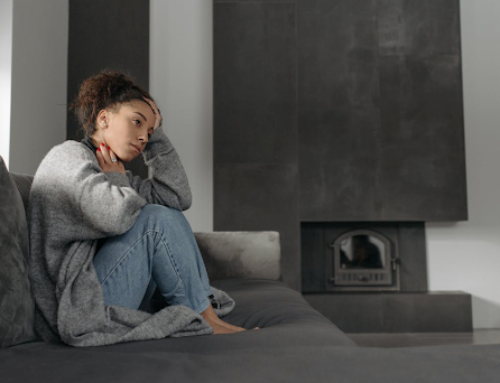
Sleep apnea is the most common sleep disorder, and it can really derail your life. Frequently waking up gasping for air can lead to daytime drowsiness, which puts you at risk for car accidents and impacts your work performance.
If you find yourself frequently starting awake in the night, snoring loudly, and gasping for air during sleep, then you may have sleep apnea. You can make an appointment with a breathing specialist in Los Angeles to get an official diagnosis if you want to stop chronic snoring.
Many sleep doctors will suggest that you try continuous positive airway pressure (CPAP) therapy as a treatment option for your sleep apnea. A CPAP machine is a mask that straps over your face to cover your nose or mouth to assist your breathing. It works by delivering pressurized oxygen into your airways, and this constant airstream pushes against any blockages, which opens your airways and keeps them unobstructed throughout the night.
Your CPAP device will have these basic components:
- a motor housed in a base unit
- a cushioned mask
- a tube that connects the motor to the mask
- a headgear frame
- “elbow” pieces that act as joints
- adjustable straps that allow you to customize the fit of the device
Schedule a visit with an ENT specialist, and they will evaluate your symptoms and any risk factors to determine if you have sleep apnea. If your ENT doctor decides that a CPAP machine is a viable option to stop your sleep issues, they will need to write you a prescription for one.
Once you have your CPAP machine to help sleep apnea, you can start shopping for one. You can get these machines through a variety of ways, including:
- Your insurance provider
- Sleep clinics
- Online vendors
- Brick-and-mortar medical equipment retailers
Westside Sinus accepts most PPO/HMO insurance plans, and we are also in-network with Medicare. Depending on which kind of Medicare you have, you may get coverage for your CPAP machine. Medicare Part B will cover 80 percent of the cost for your CPAP machine, depending on the doctor’s status as a Medicare provider.
If you do not have insurance, CPAP breathing machines can cost any from $500 to $3,000, depending on the kind you are buying.
CPAP machines are not for everyone; they can make people feel claustrophobic or uncomfortable, and some will develop skin irritation around the area the machine touches. If you don’t think a CPAP machine is right for you and your issues, then there are alternative solutions to sleep apnea, such as lifestyle changes, neural stimulation, physical therapy, surgery, and oral gear.
Sustentacular cells do have ACE2 receptors, and these kinds of cells support olfactory neurons, allowing the body to smell things. The sustentacular cells also provide the metabolic and physical support needed to sustain cilia, which are odor detectors. Physical disruption of the cilia can cause you to be unable to smell. In a French study, hamsters who had been infected with COVID-19 showed the physical detachment of their cilia.
This is the closest explanation doctors have for COVID-related smell loss is the damaged cilia. However, this phenomenon is still debated since COVID-19 patients also cannot experience the burning sensation of sriracha or the refreshing buzz of mint. These physical sensations that result from food are not related to cilia, but they are connected to cells on the tongue that contain ACE2 receptors.
If you are suffering from a loss of taste or smell, it won’t hurt to visit an ENT doctor in Los Angeles. They are specially trained in issues affecting the head, so you may benefit from an examination. Schedule a consultation with the Westside Sinus office to see if there’s anything a doctor can do for your loss of smell or taste.





